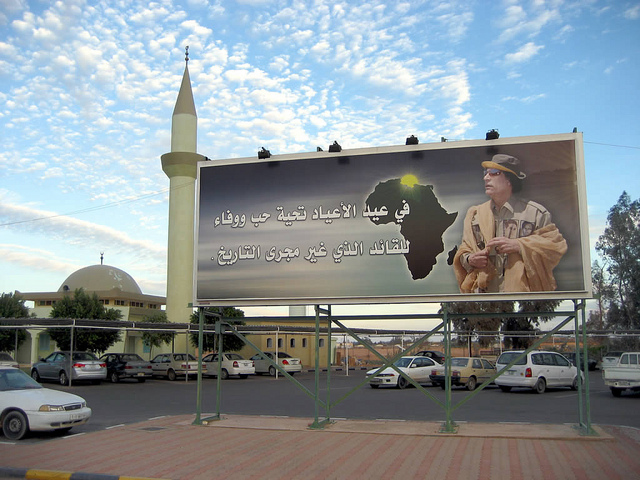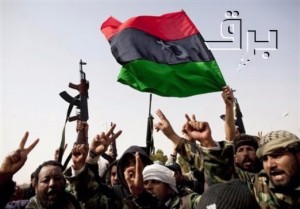 Flickr | David Stanley
Flickr | David Stanley
A Vision for Libya
Libya has crept back into the news recently as the civil war there metastasizes and as the Islamic State increases its presence there. ISIS currently has an estimated force of 6,500 fighters there, double its numbers last fall, in control of Sirte and 150 miles of coastline. The idea of Libya becoming a terrorist safe haven is alarming European governments, compelling Italy, France, and Britain to consider renewed intervention. The French defense minister, Le Drian, complained that there would have to be a national unity government for them to support in order to consider such as step.
The possibilities for such a government were threatened last January when the internationally recognized Libyan parliament in Tobruk voted 89-5 to reject the UN-backed unity government proposal, refusing the Tripoli government’s demand that Tobruk’s army commander General Hiftar step down.
Before European governments rush towards renewing intervention in Libya, it is essential to address what kind of war is being fought there. Beyond this understanding, the past two decades have taught us the importance of defining an achievable vision for Libya’s future, in order that concrete steps and measurable goals can be implemented and pursued.
First, what kind of war is Libya? Currently there are two competing governments. The elected parliament of June 2014 (the Council of Representatives) is based in Tobruk, while the Islamist-dominated General National Congress (GNC), which rejected the June 2014 elections and elected its own prime minister, is based in Tripoli. Besides these two governments, there are armed brigades fighting for revenue and territory, as well as a growing ISIS presence in Sirte and up the coast to Benghazi. While these actors are not exactly state-actors, they are also not fighting an insurgency against an established government. In the absence of central government, rival claimants and armed groups fight for territorial control, and ISIS is exploiting the power vacuum.
A recent article by The New York Times did a good job in outlining the weaknesses of both Tobruk and Tripoli against local militias in the absence of a domestic security force. It also showed from a policy standpoint how essential it can be to build a realistic vision of a post-conflict Libya. What should that Libya look like, and is it possible?

Libyan rebels. (AP Photo/Kevin Frayer)
Criticism has been leveled at the U.S. for its consistent usage of elections as milestones in state-building. Can democracy be established in the absence of preexisting state institutions? More pressing to the region, should democracy even be sought out as the highest standard of government? With elections comes Western recognition, praise, and investment, but not necessarily stability. As Libya is currently learning, democracy cannot survive when Islamic fundamentalist groups exert control. Those Islamic extremists may found parties and go to the polls, but once they are elected into government they often do not respect the same democratic values that elected them. The Islamic world has learned in Egypt, is learning in Libya, and may learn in Turkey that a democratically elected Islamic government is often only removed by force and not elections.
This is exactly what happened in Libya when the GNC refused to recognize the June 2014 elections. So why is Europe so insistent on a unity government, shared between moderates and Islamists? While Europe insists that government legitimacy must be based on broad representation, that outcome may prove illusive or destabilizing. A national government’s legitimacy can more often than not spring from the stability it provides, especially after years of conflict and civil war. In this respect the interests of Europe and a national Libyan government align.
One vision for a stable Libya could look like a constitutional monarchy, such as the moderate monarchies of Morocco and Jordan. While democratic aspirations are given a voice in parliamentary elections, the stability and secular character of the state is guaranteed by a strong head of state, who would prioritize centralized control of the military and overall stability – the exact priorities Europe should have for Libya. So what is to stop another Qaddafi from gaining power? The past fifteen years have taught monarchs and despots alike the price of isolating their people and providing no outlet for national aspirations or reform. Even if rulers only pay lip service to a parliament and a regime of reform, the old days are gone, and states are required to be more flexible and responsive than ever before. It will take a strong leader to bring stability and the co-requisite flexibility to Libya, but one worth supporting.





